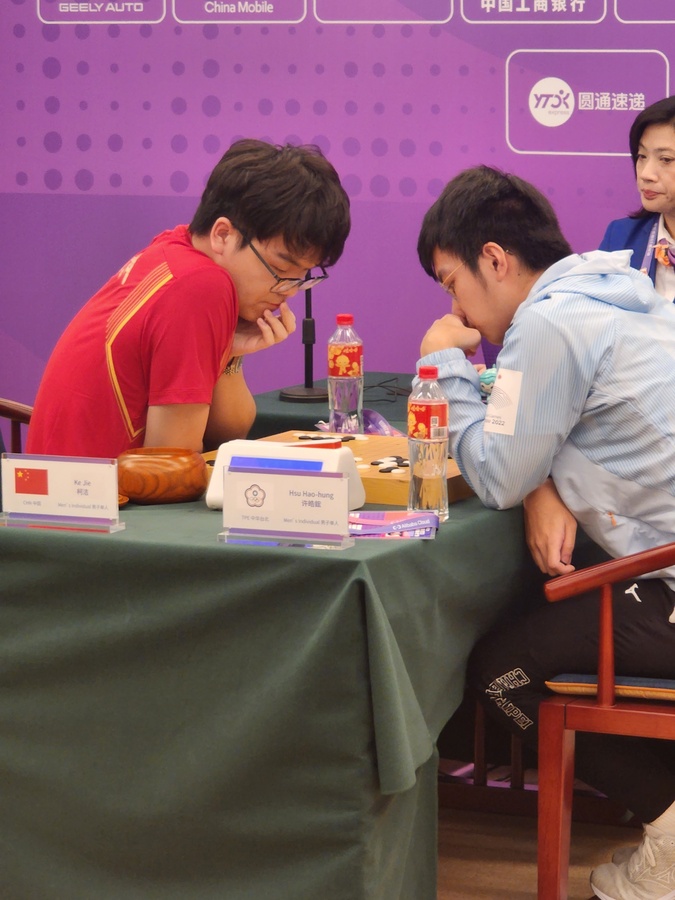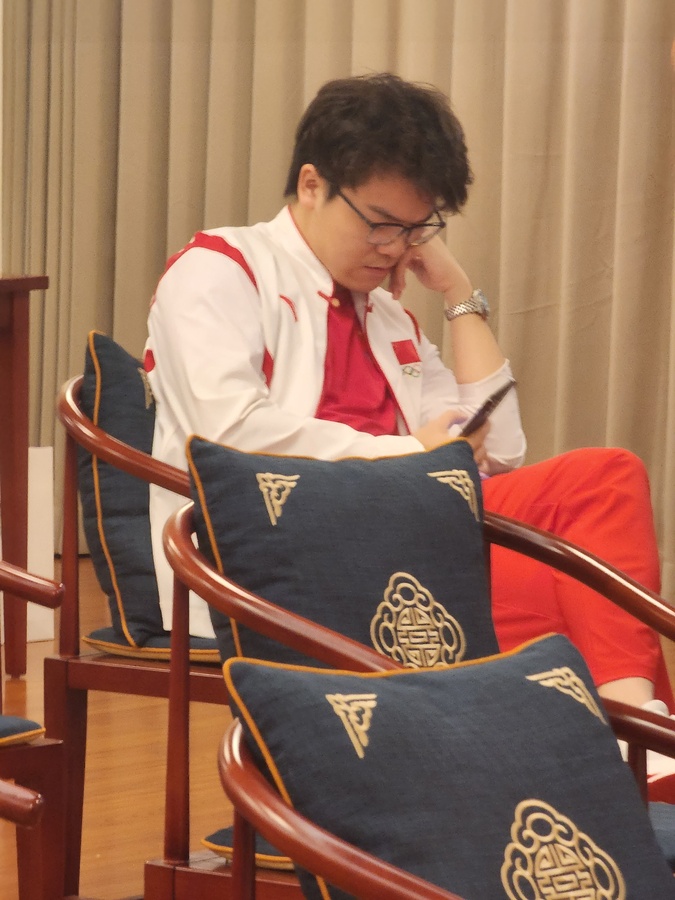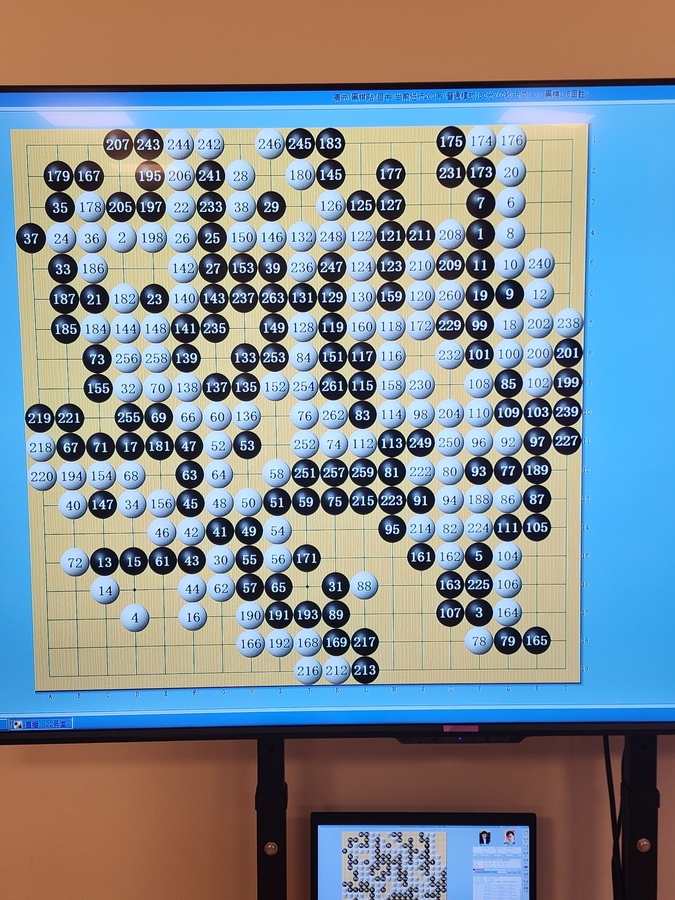Hangzhou, China, September 28, 2023: Go, going, gone. That was the sad tale of China’s Ke Jie, the world number three, who slipped to a shock defeat to Hsu Hao-hung of Chinese Taipei in the Go men’s individual gold medal final on Thursday.
After two-and-a-half hours of strategy and deep thinking, the 22-year-old from Taipei was declared the winner much to the disappointment of the home fans who had been overly confident before the final began that their favourite would romp home.
Not so. Hsu, who began playing Go at the tender age of four, was in giant-killing mode at the Hangzhou Qi-Yuan Chess Hall. In the semi-finals he knocked out Korea’s world number one Shin Jin Seo, and then proved in the final that victory was no fluke but pure brain power.
“I’m happy I didn’t disappoint the expectations of many people back home who support Go,” said Hsu. “I got off to a good start and felt I was in a pretty good situation. However, there were some areas where I played a bit hastily, and I could have found myself in difficulty later. In the end, I was quite lucky.”
Go is an abstract strategy board game for two players who basically are in a contest for limited resources – space on a wooden board chequered by 19 vertical lines and 19 horizontal lines to form 361 intersections and played with 181 black stones and 180 white stones.
Black starts first, in this case Hsu. And he looked a picture of confidence as he hardly paused in making his moves. On the opposite end sat a fidgety Ke, first removing his China Team windbreaker and then getting up to go and get a bottle of water. His opponent had brought his own to the table before the battle began, showing he was prepared, a true-blue boy scout.
“I made mistakes,” conceded Ke. “I always thought I could win the game, but in reality, the game was always very close, and then I made many wrong decisions. Actually, at one point I thought I had won the game, but really I was a long way from victory. I’m really dazed thinking how I lost. It’s such a pity.”
Last played at the Asian Games in 2010 in Guangzhou, Go can be mastered in a few minutes – yet a lifetime can be spent exploring its depths and subtleties as Ke sadly discovered.
An MVP in the Chinese Go League three times, Ke was inconsolable in defeat, adding: “I will regret this game for a long time. I felt like I had reached the finish line and was about to win, but I was overtaken at the end. It is quite sad. I will keep asking myself ‘how did I lose this game’.”
A recent study revealed that there is a 10 to the power of 170 number of possible positions in Go. To have a grasp of how big this number is, and putting it into context, the number of atoms in the observable universe is 10 to the power of 80 according to scientists. Small potatoes compared to Go.
“If all the people in the world today sat at one go and played Go, a 100 games in one day, you would still not get any repeat combinations on the board. This shows the infinite possibilities,” commented Hong Kong, China player Michael Chen Nia Sai, watching the final.
To some players, Go is a model for day-to-day decision-making like ‘Don’t put all your eggs in one basket’, or ‘Don’t burn your bridges behind you’, or ‘Look before you leap’.
Hsu seemed to have mastered all these maxims as he vanquished two of the best players in the world in a matter of hours to win the gold medal for Chinese Taipei.
The bronze medal was won by Korea’s Shin who defeated Japanese Ryo Ichiriki.



